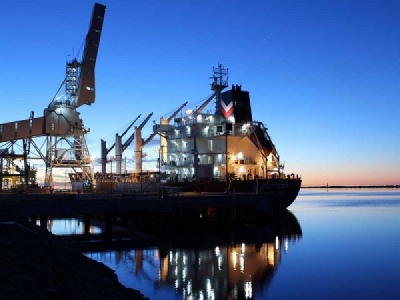
Posted on January 30, 2018
By Evan Knapp
SOUTH Australia has no choice — widen the shipping channel at Port Adelaide or accept a long, slow and painful economic death.
Virtually all (99 per cent) of our imports and exports (by weight) travel by sea — and therefore the docks at Outer Harbor are SA’s economic lifeline to the world.
Failure to widen the channel will lead to significant job losses and business closures across the state — but particularly focused in export industries and Port Adelaide.
Containerised shipping is a very competitive international market — as massive new vessels are introduced onto the world’s busiest shipping lanes, a cascade effect sees ever wider and longer vessels move from these lanes into Australian trades, which in turn requires shipping channels to be wider.
South Australia is a small player in terms of total Australian container volumes. We do not dictate what container vessels come to our waters — we are forced to take what comes.
Shipping companies choose vessels based on the major ports on their intended routes, not based on restrictions at smaller ports. These are simply bypassed as uneconomic to service.
So what if we are bypassed?
All exports would require an additional ‘‘landbridge’’ element (by rail or road) to a container port interstate, adding to transport costs and making our exports less competitive.
Similarly, our imports would also be forced to undertake an additional transport leg, adding avoidable transport costs to every purchase.
So we pay more for most goods, and make less profit than our competitors.
Landbridging also results in additional transport time, which has a negative impact on the shelf life and desirability of horticultural produce — a prime SA export industry.
The potential hundreds of thousands of additional interstate truck movements required would inevitably add to the number of deaths on our roads, and we would also expect road maintenance costs to increase substantially due to additional wear.
Environmental opponents of the channel deepening have failed to mention that while there was some initial seagrass loss from the much larger and more complex channel deepening project in 2005, there has been recovery.
The proposed dredging methodology has been improved to ensure far less temporary seagrass loss, and the EPA has publicly stated that the type of grass affected will grow back.
With only minor and temporary environmental risks, versus the virtual certainty of economic decline and job losses, for the future of the state we must widen the channel.
Evan Knapp is executive officer of the South Australian Freight Council
Source: Myaccount





